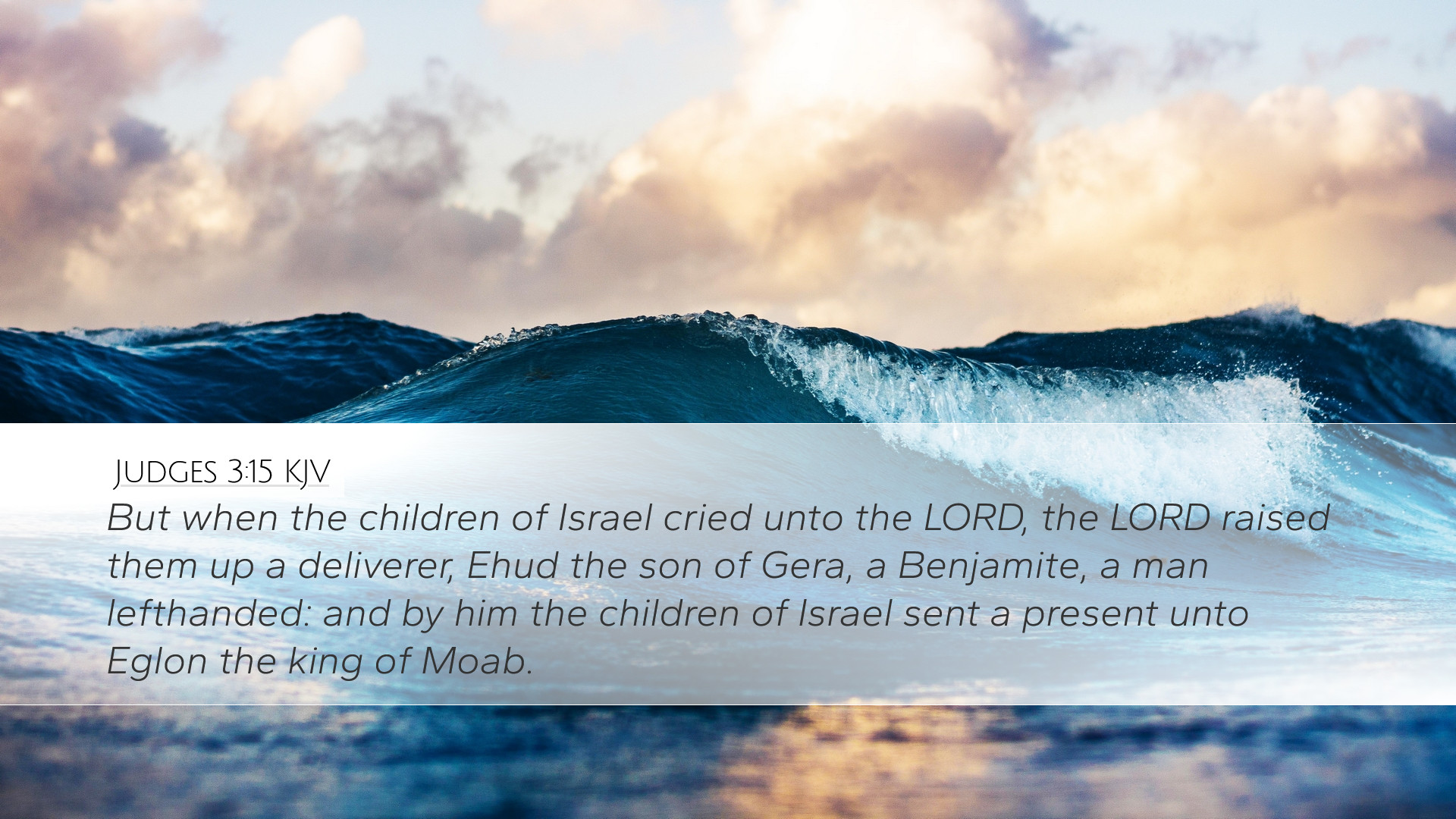Commentary on Judges 3:15
Judges 3:15 states: "But when the children of Israel cried out to the LORD, the LORD raised up a deliverer for them, Ehud the son of Gera, the son of Benjamin, a left-handed man. By him the children of Israel sent tribute to Eglon king of Moab."
1. Contextual Background
The Book of Judges is crucial for understanding Israel's history during a time of moral and social decline, following the conquest of Canaan. This period is marked by a cyclical pattern of sin, oppression, repentance, and deliverance.
- Historical Setting: Israel repeatedly turns away from God, leading to their subjugation under foreign powers.
- Spiritual Significance: The cry of the Israelites signifies their acknowledgment of their plight and a return towards God.
2. The Nature of Israel's Cry
This verse highlights that “the children of Israel cried out to the LORD.” This cry reflects a deep spiritual desperation.
- Desperation and Repentance: Their cry indicates a profound recognition of their sins and need for divine assistance.
- God’s Response: Notably, God responds to their cry by raising a deliverer—demonstrating His faithfulness and willingness to save.
3. The Role of Ehud
Ehud is introduced as a son of Gera from the Tribe of Benjamin. His characterization as a left-handed man is significant both in terms of his tactical advantage in battle and metaphorical representation.
- Left-handedness: Commentators note that his left-handedness would have been unusual in a society that favored right-handedness, possibly implying resourcefulness and unconventional methods.
- Divinely Appointed: His appointment as a deliverer underscores God’s sovereign choice of instruments for His purposes, often utilizing the weak and unlikely.
4. The Tribute to Eglon
The contrast between the Israelites' submission to Eglon, the king of Moab, and their subsequent deliverance highlights the cycle of oppression and release which is central to the narrative.
- Tribute as Submission: The tribute signifies their oppressive taxation and the humiliation of God's people under foreign rule.
- Prophetic Foreshadowing: The act of sending tribute foreshadows God’s eventual deliverance through Ehud, which is essential for understanding the overarching theme of God’s sovereignty.
5. Theological Reflections
Judges 3:15 offers several theological insights that are deeply meaningful for contemporary readers.
- The Nature of God’s Deliverance: God listens to the cries of His people, emphasizing His compassionate character.
- Divine Sovereignty: This verse illustrates that God is actively involved in His creation history, raising leaders at crucial times.
- Human Instrumentality: The use of Ehud as a deliverer highlights that God often works through imperfect people, encouraging us to remain available for His purpose.
6. Applications for Today
The messages within this verse are applicable for various audiences, including pastors, students, theologians, and laypersons.
- Call to Prayer: The emphasis on crying out to God serves as a reminder for believers to seek divine intervention in times of trouble.
- Trust in God’s Plan: The unconventional delivery of Ehud invites believers to trust in God’s unique provisions as He raises leaders in unexpected ways.
- Awareness of Sin: The cyclical nature of sin and deliverance reminds the church of the importance of continuous repentance and reliance on God’s grace.
Conclusion
Judges 3:15 serves as a vibrant reminder of God’s faithfulness to His people, even amid their failings. It invites all to see God’s scope of affection and mercy, encouraging believers to respond to their circumstances by reaching out in prayer, much like the Israelites did.


